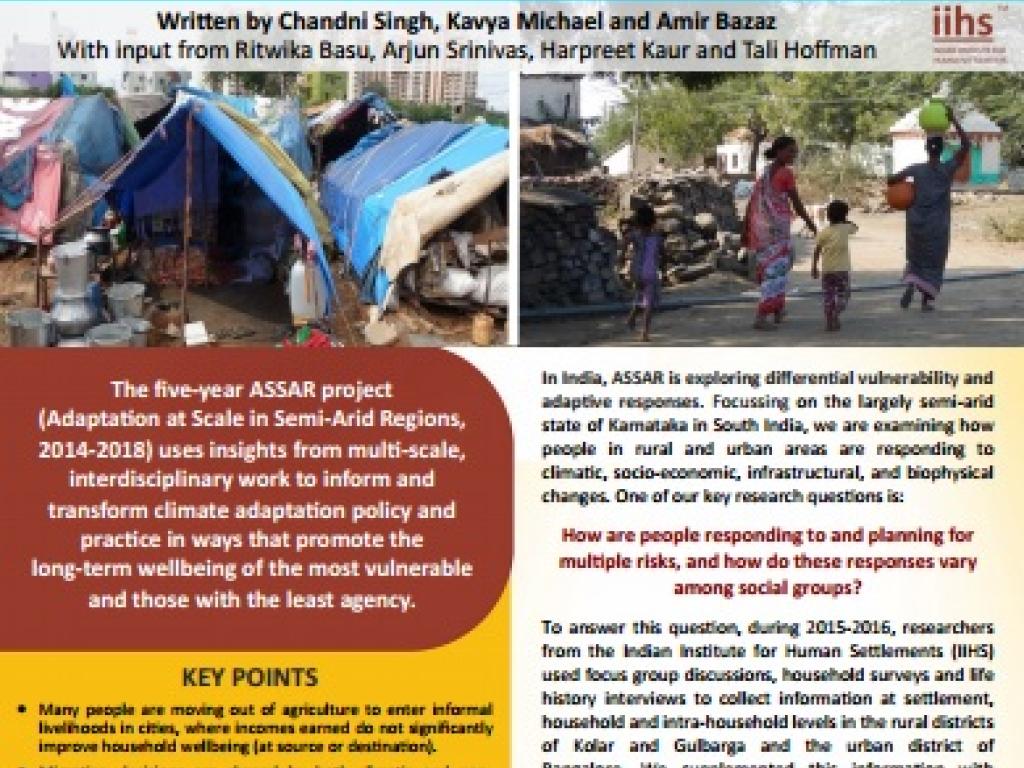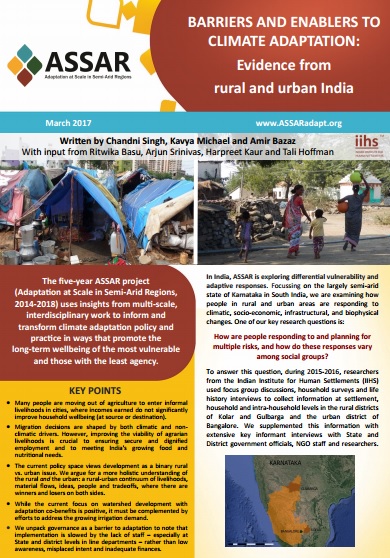Barriers and enablers to climate adaptation: Evidence from rural and urban India

Written by Chandni Singh, Kavya Michael and Amir Bazaz, with input from Ritwika Basu, Arjun Srinivas, Harpreet Kaur and Tali Hoffman
In India, ASSAR is exploring differential vulnerability and adaptive responses. Focussing on the largely semi-arid state of Karnataka in South India, we are examining how people in rural and urban areas are responding to climatic, socio-economic, infrastructural, and biophysical changes. One of our key research questions is: How are people responding to and planning for multiple risks, and how do these responses vary among social groups?
To answer this question, during 2015-2016, researchers from the Indian Institute for Human Settlements (IIHS) used focus group discussions, household surveys and life history interviews to collect information at settlement, household and intra-household levels in the rural districts of Kolar and Gulbarga and the urban district of Bangalore. We supplemented this information with extensive key informant interviews with State and District government officials, NGO staff and researchers.
This brief describes our findings.
Click the image to download the brief
